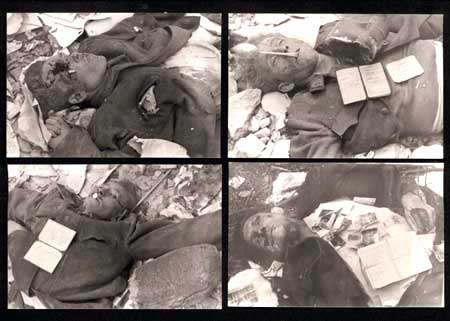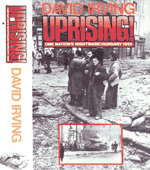Paul Woodward, Online Correspondent http://www.thenatio In an article written for Newsweek magazine, the US President Barack Obama laid out the principles that guide America's effort to address the desperate needs of Haitians in the aftermath of last week's devastating earthquake. US faces criticism over coordination of Haitian relief effort
"We act for the sake of the thousands of American citizens who are in Haiti, and for their families back home; for the sake of the Haitian people who have been stricken with a tragic history, even as they have shown great resilience; and we act because of the close ties that we have with a neighbour that is only a few hundred miles to the south.
"But above all, we act for a very simple reason: in times of tragedy, the United States of America steps forward and helps. That is who we are. That is what we do."
In The Washington Post, Jeffrey D Sachs pointed out that in recent years America has adopted had a heavy-handed approach in its dealings with the troubled Caribbean nation.
"In the past two decades, US interventions have done much more harm than good to the Haitian economy. In the early 1990s, Washington thought it did Haiti a favour by imposing a crushing trade embargo to bring about democratisation – specifically, the reinstatement of democratically elected President Jean-Bertrand Aristide. The embargo destroyed Haiti's fragile manufacturing industries.
"Then, true to America's political swings, ideologues in the Bush administration spent years trying to oust Aristide, first by foisting a de facto and illegal aid freeze on international development agencies, and then by brazenly toppling Aristide and carrying him to the Central African Republic. Congress took a pass on reviewing these sordid events, pausing only to declare its love for the Haitian people.
"Now it's time to save Haitian lives by the millions, or watch a generation perish. A serious response will require a new approach. President Obama should recognise that the US government alone lacks the means, attention span and true regard for Haiti that is needed to see this through past the most urgent phase. After the coming weeks, during which US emergency airlift assistance is essential, the effort should be quickly internationalised, in an effective manner that acknowledges US political realities and leverages the help that Washington will give.
"Typically, a tragedy such as this is followed by international pledges of billions of dollars, but then only a slow trickle of help. The government of Haiti, overwhelmed far before this earthquake, is in no position to pester 20 or more complicated donor agencies to follow up on designing projects and disbursing funds. The recovery operation needs money in the bank - in a single, transparent, multidonor recovery fund for Haiti and the world to see. Haiti does not need a pledging session; it needs a bank account to fund its survival and reconstruction."
The New York Times reported: "Even as the United States took a leading role in aid efforts, some aid officials were describing misplaced priorities, accusing United States officials of focusing their efforts on getting their people and troops installed and lifting their citizens out. Under agreement with Haiti, the United States is now managing air traffic control at the airport, helicopters are flying relief missions from warships off the coast and 9,000 to 10,000 troops are expected to arrive by Monday to help with the relief effort.
"The World Food Programme finally was able to land flights of food, medicine and water on Saturday, after failing on Thursday and Friday, an official with the agency said. Those flights had been diverted so that the United States could land troops and equipment, and lift Americans and other foreigners to safety.
" 'There are 200 flights going in and out every day, which is an incredible amount for a country like Haiti,' said Jarry Emmanuel, the air logistics officer for the agency's Haiti effort. 'But most of those flights are for the United States military.
"He added: 'Their priorities are to secure the country. Ours are to feed. We have got to get those priorities in sync.'"
The Washington Post added: "there were growing tensions over which country's planes were allowed to land here first, with each nation insisting its aid flight was a priority, according to an official involved in the relief operation.
"France, Brazil and Italy were said to be upset, and the Red Cross said one of its planes was diverted to Santo Domingo, the capital of neighbouring Dominican Republic.
"The French government became so annoyed when a plane with an emergency field hospital was turned back Friday that foreign minister Bernard Kouchner lodged a protest with the State Department, according to the French ambassador to Haiti, Didier Le Bret.
"Le Bret said that the Port-au-Prince airport has become 'not an airport for the international community. It is an annex of Washington.'"
The National noted: "Haitian-Americans have welcomed the Obama administration's announcement that it would extend a special immigration status to Haitians living illegally in the United States, protecting them from deportation and allowing them to work for 18 months. Officials said it would cover at least 100,000 Haitians living here without documentation and 30,000 Haitians who had been ordered deported.
"However, in a bid to discourage Haitians from trying to enter the United States by boat, any who entered after this week would be sent back to Haiti.
" 'Attempting to leave Haiti now will only bring more hardship to the Haitian people and nation,' said Janet Napolitano, the secretary of homeland security."
The Wall Street Journal, reporting from aboard the aircraft carrier USS Carl Vinson said that the vessel's state-of-the-
"Until Saturday evening, the carrier had made an exception for two victims, one a US citizen and the other presumed to be so, Naval officials said. When the clinic was observed by a Wall Street Journal reporter Saturday afternoon, all the beds were empty. Lt Cmdr Jim Krohne, a spokesman for the aircraft carrier and its captain, responding to a reporter's queries, said the vessel's mission was 'sea-based' and the primary focus of the clinic was to treat American citizens. Others, including Haitians, would be treated if they were sent by military commanders in Port-au-Prince, he said.
"The seven Haitian residents were accepted on board later in the day when a Coast Guard helicopter pilot had to abandon plans to ferry them to onshore medical facilities outside the city. Poor weather and then darkness forced a mid-flight correction, said Naval officials and the pilot, Lt Tim Williams. So Lt Williams, normally stationed in Clearwater, Fla., diverted to the Vinson for its facilities.
"The situation aboard the Vinson highlights a dilemma being faced by the US military and other organisations bringing medical aid to Haiti, as residents of its capital face the threat of a continuing wave of deaths from disease and lack of treatment. In some cases, life-saving supplies and expertise stand tantalisingly close to the devastated capital but still out of reach of those in need, and the enormity of the emergency has caused some rescuers to re-examine their procedures.
"Cmdr Alfred Shwayhat, the senior medical officer who is an endocrinologist, said he had a plan to 'treat 1,000 Haitians if necessary,' when interviewed aboard the ship on Saturday. But he had received no orders to do so. 'If the captain authorises it, I will take anyone,' he said. The Vinson's facility, he said, 'exceeds anything in the civilian sector, bar none.'"
NOW AN AMAZON KINDLE BOOK ON YOUR PC, iPHONE OR KINDLE DEVICE
Debating the Holocaust: A New Look at Both Sides By Thomas Dalton
In this remarkable, balanced book, the author skillfully reviews and compares "traditional" and "revisionist" views on the "The Holocaust."
On one side is the traditional, orthodox view -- six million Jewish casualties, gas chambers, cremation ovens, mass graves, and thousands of witnesses. On the other is the view of a small band of skeptical writers and researchers, often unfairly labeled "deniers," who contend that the public has been gravely misled about this emotion-laden chapter of history.
The author establishes that the arguments and findings of revisionist scholars are substantive, and deserve serious consideration. He points out, for example, that even the eminent Jewish Holocaust scholar Raul Hilberg acknowledged that there was no budget, plan or order by Hitler for a World War II program to exterminate Europe's Jews.
This book is especially relevant right now, as "Holocaust deniers" are routinely and harshly punished for their "blasphemy," and as growing numbers of people regard the standard, Hollywoodized "Holocaust" narrative with mounting suspicion and distrust.
The author of this book, who writes under the pen name of "Thomas Dalton," is an American scholar who holds a doctoral degree from a major US university.
This is no peripheral debate between arcane views of some obscure aspect of twentieth century history. Instead, this is a clash with profound social-political implications regarding freedom of speech and press, the manipulation of public opinion, how our cultural life is shaped, and how power is wielded in our society.
http://www.amazon.
Peace.
Michael Santomauro
Editorial Director
Call anytime: 917-974-6367
ReporterNotebook@




 Photo right shows: Image of Matyas Rakosi, Hungary's Jewish dictator, being burnt by angry insurgents in1956
Photo right shows: Image of Matyas Rakosi, Hungary's Jewish dictator, being burnt by angry insurgents in1956 